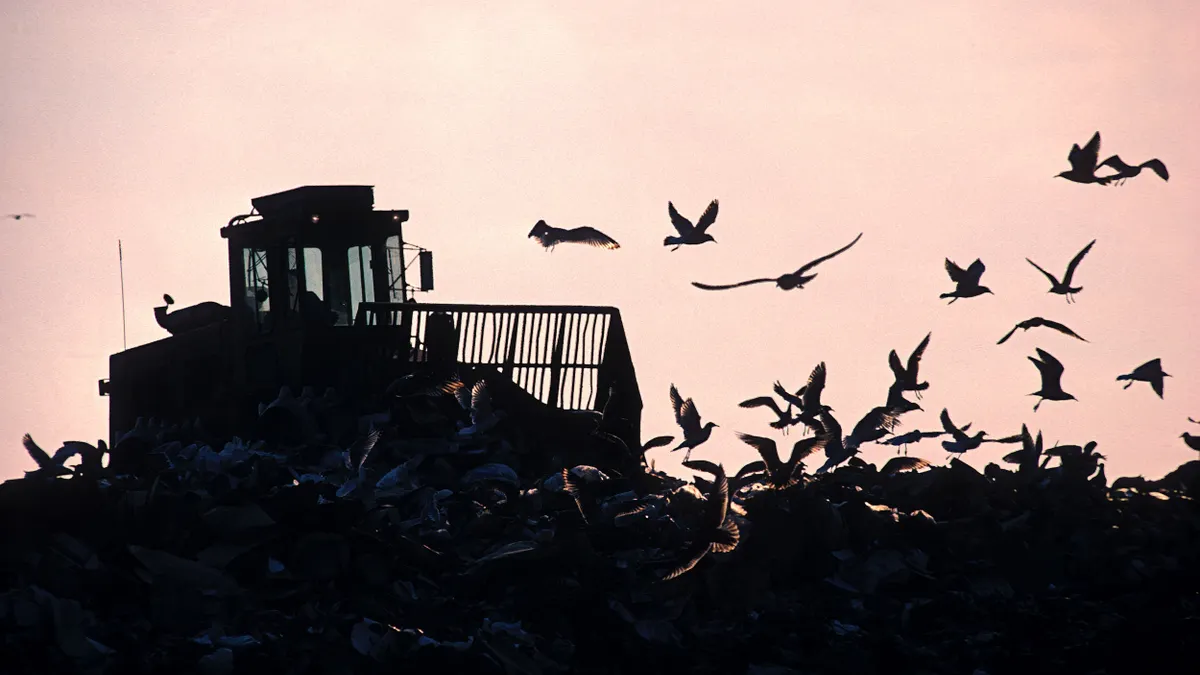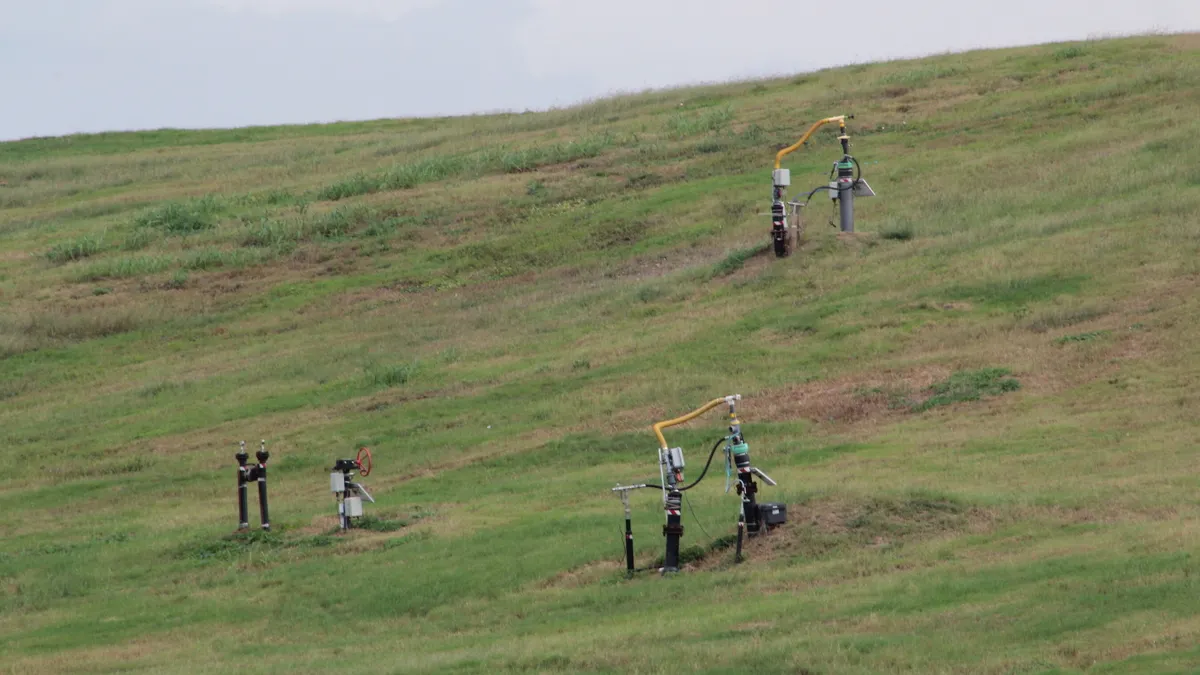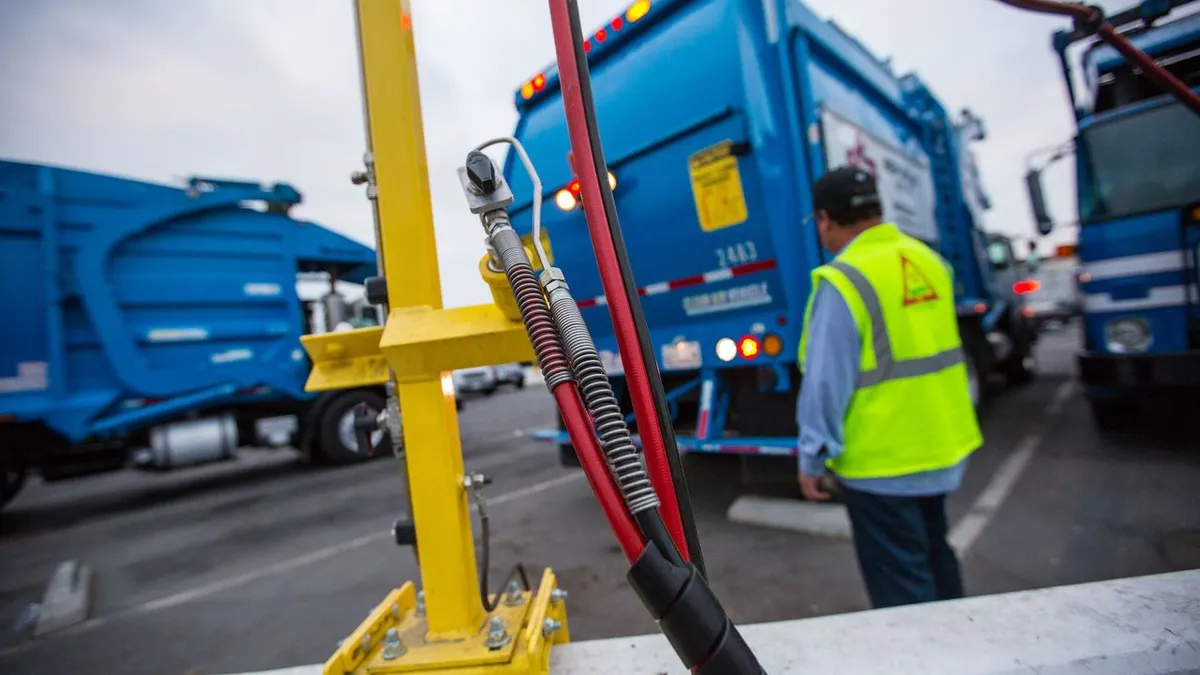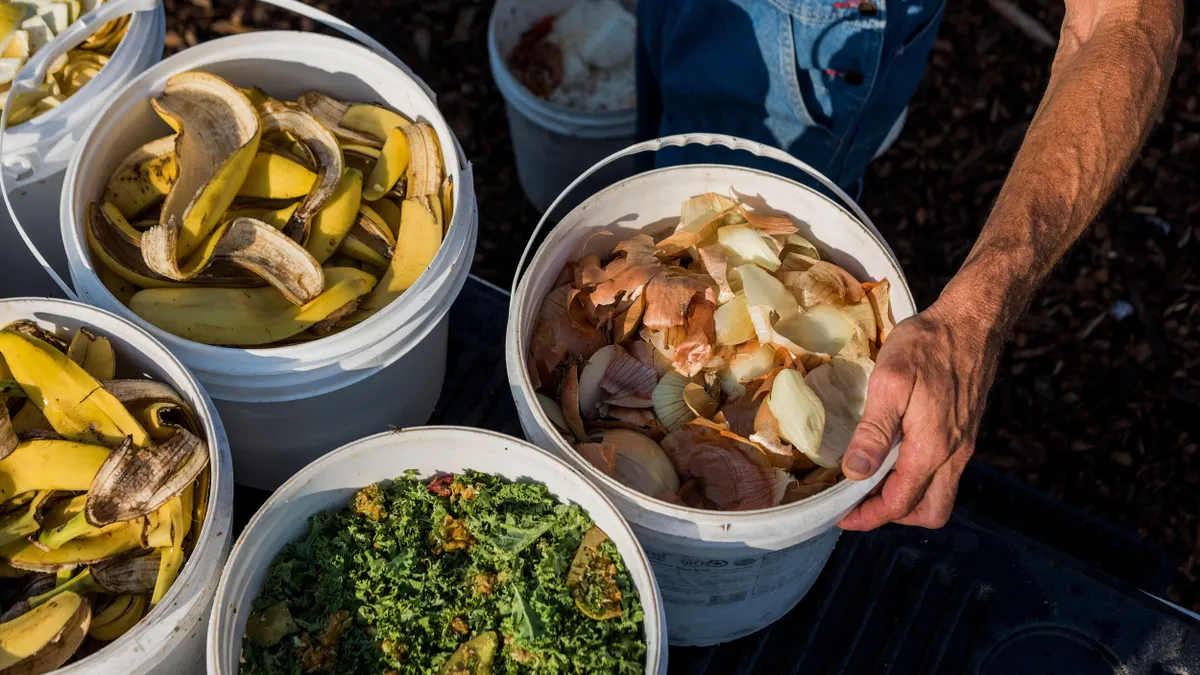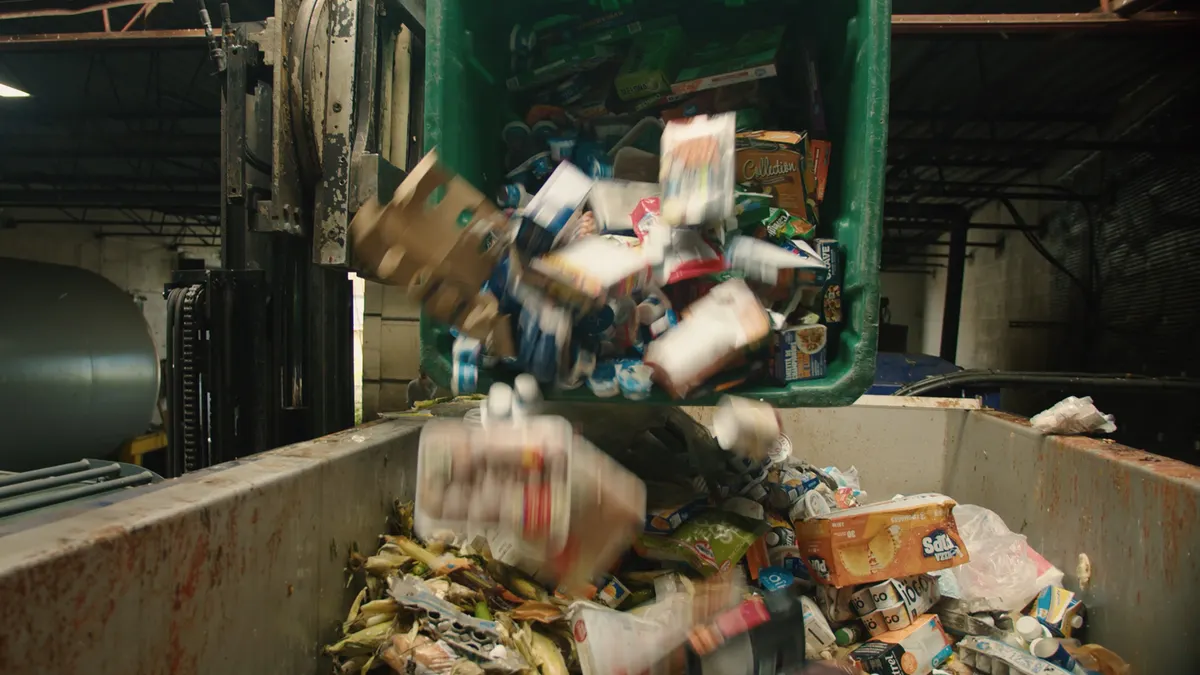Full Circle Future, a new nonprofit spun out from Industrious Labs' waste and circular economy campaigns, launched Tuesday. The six-employee team, sponsored by nonprofit Social and Environmental Entrepreneurs, will continue and grow the work it's done under Industrious to advocate for tighter landfill restrictions and stronger circular economy protections.
Katherine Blauvelt will lead the organization as executive director. She was previously circular economy campaign director at Industrious, a climate solutions nonprofit focused on heavy industry.
In a release announcing the spin-off, Industrious Labs Partner Evan Gillespie highlighted the circular economy campaign’s work over the past few years, which includes advocating for new landfill emission rules in Oregon and Washington.
“The Industrious Labs team is proud of its work to incubate and grow the circular economy campaign, from a concept to the leading, high-impact operation it's become,” Gillespie said in a statement.
In her new role, Blauvelt will continue the work she’s done advocating for policies at the local, state and national level that require landfill operators to implement the latest emissions tracking technology.
Full Circle Future sees removing organic waste from landfills and more quickly resolving landfill gas plumes as important public health issues that can be solved using tools like drones, satellites and other technologies that are already available.
“Our focus is eat, sleep and breathe solving the single biggest component in landfills today, and that's organic waste. It's a massive, massive missed opportunity,” Blauvelt said.
At launch, Full Circle Future has released a national policy tracker that also includes Carbon Mapper’s up-to-date data on landfill gas plumes. The organization plans to get involved in ongoing landfill policy debates, including in states with pending regulations like Colorado and California.
Blauvelt discussed her vision for Full Circle Future with Waste Dive, as well as how she views landfill policy today.
This interview has been lightly edited for length and clarity.
WASTE DIVE: Tell me what your mission will be with Full Circle Future.

BLAUVELT: We started Full Circle Future to tackle a big but solvable problem, and that's organic waste. When food and yard waste end up in landfills, they create methane. There's toxic co-pollutants, and that's harming communities and it's fueling climate change.
The U.S. is home to 2,600 municipal solid waste landfills. There's at least one in every state. Piling trash in landfills is more than just a waste of food and money. It's creating emissions that exacerbate climate change. The pollutants make us sick. They pollute our air and water. So let's take our current take, make, waste economy that's all downside and no upside and flip it on its head and build a system that puts people at its center. That's the big, bold win.
It's just, do you care about economic development? Do you care about forever chemicals? Do you care about keeping your families healthy and kids being able to play outside. There's just so much opportunity here on this issue to just make people's lives better.
We can get in place better policies and systems. We can imminently solve this problem. So it's a new organization focused on turning waste into a public health win, climate win.
We're launching Full Circle Future to really focus deeply on supporting communities and building the partnerships that are needed to transform how we handle waste, starting from the ground up.
We're coming at the issue from every angle. We want to improve landfill emission standards, expand organics recycling, really build the coalitions and policy change that's achievable and bold. We are doing that in partnership with local grassroots leaders who know what their communities need.
Where do you see the greatest opportunity for action? Is it local? Is it state? Is it federal? How do you get involved?
What’s really exciting about working on organic waste is every level of government has an opportunity to make a change that will have a direct tangible benefit for people and for the environment.
Full Circle Future, we’ll be delivering our data chops, our policy smarts, to really just help supercharge existing efforts. We're bringing together people who are impacted by landfills, who live with these landfills 365 days a year, into a national space. We could really problem solve together. There's no question the folks that deal with the toxic impacts of landfills know what the solutions should be.
In your launch release, you mentioned that our waste systems, particularly landfills, exist at this nexus between health and climate impacts. Do you feel like that connection is something that people currently understand well?
There's been study after study that have shown the multibillion-dollar costs with the pollution that methane creates. We're talking about sick days, lost workdays, premature deaths, hospital visits. Landfills have been this zombie problem, this invisible problem lurking in our backyards. Now, thanks to technology that's really making these methane emissions detectable, it's coming more to the forefront.
At the same time we have all this game-changing technology that's really leveling up what's possible in terms of responsibly controlling these emissions. It’s this great confluence that we really want to work with communities to take advantage of.
How do you see the state of the landfill regulations in this country today?
Right now, landfills are like zombies. They're everywhere. They're not going away on their own. They're creating these multiple compounding problems. We're talking forever chemicals, landfill fires that are endangering entire communities and these constant methane emissions that are fueling our climate crisis and public health problems.
And here's the flip side: The solutions are tangible and already within reach. We have ready technology that's being deployed and is in use. And what we're really looking for is making that a common sense standard for all communities across the country.
There's just been so much momentum from cities in Ohio to Florida to Washington that are realizing local economic development. You just create more jobs when you don't landfill or incinerate. You can also strengthen food systems and feed hungry people with delicious food that just needs to get to them.
We see really strong prospects for progress because it's just such a practical, in your backyard, in your community win that's really tangible. Local leaders are frankly hungry for solutions that benefit people, and so we'll be there to help them act on it.
How much of the policy work that you plan to do will revolve around organics recycling or other things that are essentially keeping organics from getting into landfills in the first place?
That speaks to our name, Full Circle Future. We're really working on all of the above. Even if we stop burning and burying waste completely tomorrow, we're still stuck with these zombie landfills for decades.
We're really working at it from all sides. That's where we're going to see the most bang for our buck. What's exciting is we know what the solutions are. We don't have to do a hydrogen moonshot program. We just have to apply what's known and really raise this issue to policymakers and work with them on tangible solutions.
Are you agnostic on organics recycling technologies at this stage? Would you support anaerobic digestion in addition to composting?
We are focusing on any and all policies and programs that divert organic waste, that promote food recycling. But we're really, in our approach, centering partners and communities that have traditionally been left out of the economic system. So we are prioritizing starting with folks that know the most about what works for their community and what the problems are, and that will absolutely inform the kind of policy decisions you'll see us working on.
For example, we're super excited about working with folks who are based in Detroit and doing amazing, really grounded work in both composting and also dealing with basic issues of food insecurity. We’re really starting there in terms of, OK, what kind of policy solutions from Lansing would really benefit both the communities in Detroit, but also across the state? You'll be seeing more about that in the coming months.
How do landfills fit into this vision of circularity that you're promoting with Full Circle Future? What do you think is the best way to move forward with these existing zombie facilities, as you've called them?
We absolutely believe you don't ever want to make the problem worse. We know solutions aren't one-size-fits-all. It's why you have to approach waste sector transformation from all sides.
I don't think anyone woke up from a community perspective and said, “This is exactly the waste system that we want in this country.” We believe in a future where landfilling isn't the status quo, it isn't the default solution. You can create so many more jobs, reduce pollution, strengthen food systems, support healthier communities, when you're invested in food recycling, when you’re invested in moving edible food to a food pantry as opposed to the trash. That's the future that we're fighting for.
Frankly, this is achievable for the existing landfills. We've got everything from drones to satellites to wellhead tuning, smart practices around cover. In this next decade, we could absolutely see a lot of progress towards transformation in terms of how landfills are managed in this country. That'll take policymaker action, which we're the tip of the spear on.
Can you tell me more about the kinds of changes that you hope to see and achieve in the coming years on this issue?
From Maryland to Michigan to California to New York, we're seeing real appetite for policies that protect public health, that cut emissions, that are cost effective, and just deliver tangible benefits like clean air, local jobs, less food waste. There's nothing stopping us. We'll be working at the state and local level to scale up food recycling and rewrite the outdated rules that are governing landfills.
That's all while building power alongside communities that are living near landfills. Those are the folks leading the charge and conversely are just living with a clear and present danger every day.



